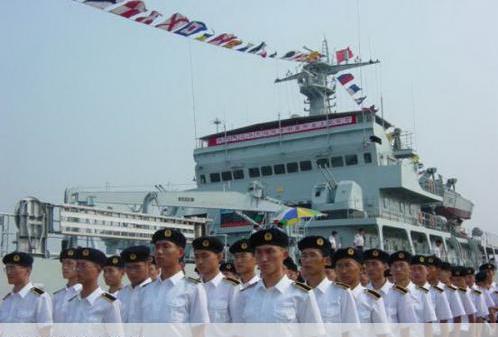The "Bill of Rights" allows decent work for seafarers
 On August 20, the 2006 International Maritime Labour Convention (MLC2006 Convention) came into effect. The Convention is a comprehensive maritime labour treaty concluded by the tripartite government, shipowners and seafarers under the ILO tripartite framework. The Convention incorporates the rights of seafarers into uniform international standards and is conducive to achieving decent work and life for seafarers on board.
On August 20, the 2006 International Maritime Labour Convention (MLC2006 Convention) came into effect. The Convention is a comprehensive maritime labour treaty concluded by the tripartite government, shipowners and seafarers under the ILO tripartite framework. The Convention incorporates the rights of seafarers into uniform international standards and is conducive to achieving decent work and life for seafarers on board. Unified global seafarers' rights and interests guarantee standards
The Convention is called the "bill of rights" of the global seafarers and the "fourth pillar" of the international maritime convention system. They are respectively the "minimum requirements for the work of seafarers on board", "employment conditions", "living rooms, recreational facilities, food and The five aspects of dietary service, health protection, medical care, welfare and social security, and compliance and enforcement are detailed. These regulations effectively harmonize the protection standards of global seafarers' rights and provide practical solutions to their universal application and implementation throughout the world.
According to Li Enhong, Director of the Seafarers Division of the Maritime Affairs Department of the Ministry of Transport, the implementation of the Convention is an important result of the ILO's decent work agenda. It has effectively promoted the protection of seafarers’ rights and seafarers throughout the world. The economic status and social status. At the same time, the implementation of the convention will provide a fair arena for shipowners, nurture high-quality seafarers and high-quality ship owners, and thus promote the sustained and healthy development of the international shipping market.
China is a large seafarer country and currently employs 650,000 seafarers. It is responsible for 93% of the nation's foreign trade transport missions; China has dispatched nearly 100,000 seafarers each year and has become an important exporter of seafarers' services in the world. However, the poor conditions of living and the harsh conditions of life make many people unwilling to use seafarers as a lifelong career. The decent work of seafarers promoted by the convention will encourage more young people to participate in the maritime industry, which will have a far-reaching impact on China’s efforts to build a stable and high-quality crew and ensure the sustained and healthy development of the shipping industry. From a long-term perspective, the implementation of the convention is also of great significance to the advancement of the ocean power strategy.
Maritime labor inspection network spreads
Liang Wanchun, a member of the Maritime Affairs Agency's Implementation Working Group, said that after the Convention came into effect, the first to be affected was the dispatch of seafarers in China and the owners of international routes that participate in international competition. The Convention stipulates that if seafarers are recruited through recruitment agencies of non-participating seafarers, the shipowner must take steps to verify whether the seafarers recruitment agency meets the standards of the Convention. On July 1, 2011, China began to implement the Provisions of the People's Republic of China on the Administration of the Distribution of Seafarers, strengthened the management of seafarers' dispatched institutions, and met the requirements of the Convention for the recruitment and placement of seafarers.
Secondly, the Port State Supervision and Inspection Network for maritime labor conditions will be fully implemented after the implementation of the Convention. The port State supervision officials of the ratified countries will impose strict maritime labor inspections on ships arriving in Hong Kong, and our ship owners will face unprecedented challenges. pressure. Not long ago, the Ministry of Maritime Affairs and China Classification Societies signed an agreement to commission CCS to inspect the maritime labor conditions of Chinese international sailing vessels and to issue maritime labor compliance certificates on behalf of the maritime authorities.
As one of the sponsors of the MLC2006 Convention, our government has played an important role in the formulation of the Convention. The Maritime Administration of the Ministry of Transport made a series of convention studies and preparations for legal documents on compliance. The Ministry of Transport and the Ministry of Human Resources and Social Security have also reached a memorandum of cooperation for compliance, which clarifies the principles of “dual administrative authority principle†and “joint management, two supervisions, and one certificationâ€. At the 2013 China Seamen Conference, the relevant responsible persons of the two departments stated that China has basically fulfilled the conditions for ratification and is implementing relevant legal procedures.
It is reported that the Convention was passed by high votes at the 94th International Labour Conference in 2006. According to regulations, the Convention will enter into force 12 months after the date of registration of the ratification of at least 30 member states that together account for 33% of the world’s gross tonnage of ships. The 2009 Convention reached a condition of 33% gross tonnage; on August 20th, 2012, with the Philippines as the 30th country submitting the instrument of ratification to the International Labour Office, the two conditions for the entry into force of the Convention have been met and for one year It will take effect today. As of August this year, 41 member states have already ratified the convention, accounting for 75% of the world's ship gross tonnage.
Digital Cutting Machine,Wire Cutting Machine,Cutting Machine
Ningbo luxibo co,.ltd , http://www.fjstrippingmachine.com